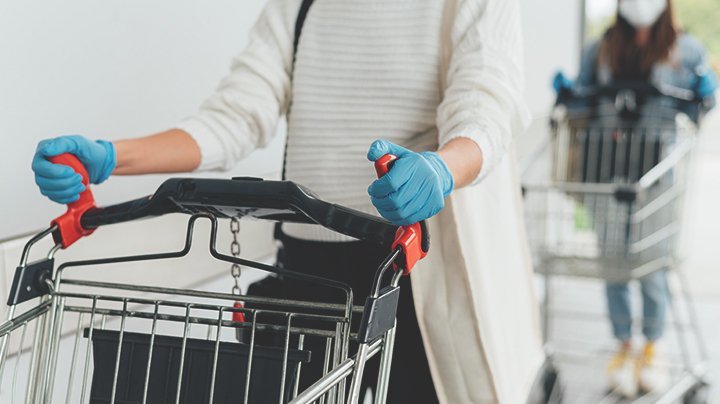3 Myths About COVID-19 Vaccines, Debunked By Science
May 9, 2021

COVID-19 has changed our lifestyles irreversibly, causing us to adopt new habits and make new precautions. But there are certain habits we no longer have to bother with, as well as dangerous myths about COVID-19 that need to be dispelled. Here are some COVID-19 myths that have been proven wrong by scientists.
1. MYTH: You have to wipe down all your grocery items when you get home.
According to Intermountain Healthcare, “there are no reports of people contracting COVID-19 from food or packaging from grocery stores. You can wipe down packing and allow to air dry as a precaution, but it is not recommended that you wipe down non-packaged food you will ingest with chemical cleaners.” xxx
This is corroborated by the Food and Drug Administration (FDA) in the US: “Again, there is no evidence of food packaging being associated with the transmission of COVID-19. However, if you wish, you can wipe down product packaging and allow it to air dry, as an extra precaution.”
As usual, though, it’s important to wash fruits and vegetables before use, just like you were already doing pre-pandemic (at least, we hope so!).
2. MYTH: Water or swimming can transmit the COVID-19 virus.
“The COVID-19 virus does not transmit through water while swimming. However, the virus spreads between people when someone has close contact with an infected person,” says the World Health Organization.
Of course, that doesn’t mean social distancing goes out the window when you’re out swimming. “Avoid crowds and maintain at least a 1-metre distance from others, even when you are swimming or at swimming areas,” WHO advises. “Wear a mask when you’re not in the water and you can’t stay distant. Clean your hands frequently, cover a cough or sneeze with a tissue or bent elbow, and stay home if you’re unwell.”
Better yet, try to keep swimming activities private, such as in your home swimming pool or in a privately-rented villa or resort area.
3. MYTH: Shoes are high-risk for spreading COVID-19.
Looks like those foot baths don’t do much for curbing the spread of COVID-19. The WHO debunks shoes as being a high-risk COVID spreader in a YouTube video released last August 2020. “The likelihood of COVID-19 being spread on shoes and infecting individuals is very low. As a precautionary measure, particularly in homes where infants and small children crawl or play on floors, consider leaving your shoes at the entrance of your home. This will help prevent contact with dirt or any waste that could be carried on the soles of shoes.”
4. MYTH: COVID-19 is spread by houseflies, mosquitoes, or 5G networks.
OK, hard no! According to the WHO, there has been neither information nor evidence that suggests COVID-19 is spread by mosquitoes, flies, or least of all, 5G networks. Let’s remember that COVID-19 began in Wuhan, China, and all available evidence so far points to zoonotic transmission from a bat that was infected with SARS-CoV-2.
5. MYTH: You can use antibiotics to treat COVID-19.
“Antibiotics work only against bacteria, not viruses. COVID-19 is caused by a virus, and therefore antibiotics should not be used for prevention or treatment,” says WHO. However, some people who have COVID-19 can develop a bacterial infection as a result, causing them to need antibiotics.
We hope that’s cleared everything up. As usual, let’s wear masks, practice social distancing, and stay home as much as possible—our best chance of fighting COVID-19 is not allowing ourselves to be susceptible to infection in the first place. Stay safe, Belo Beauties!